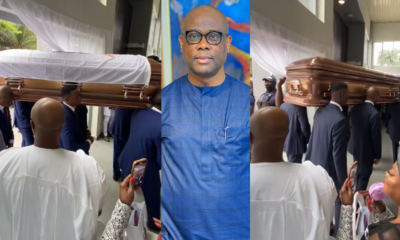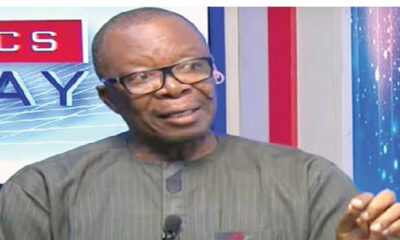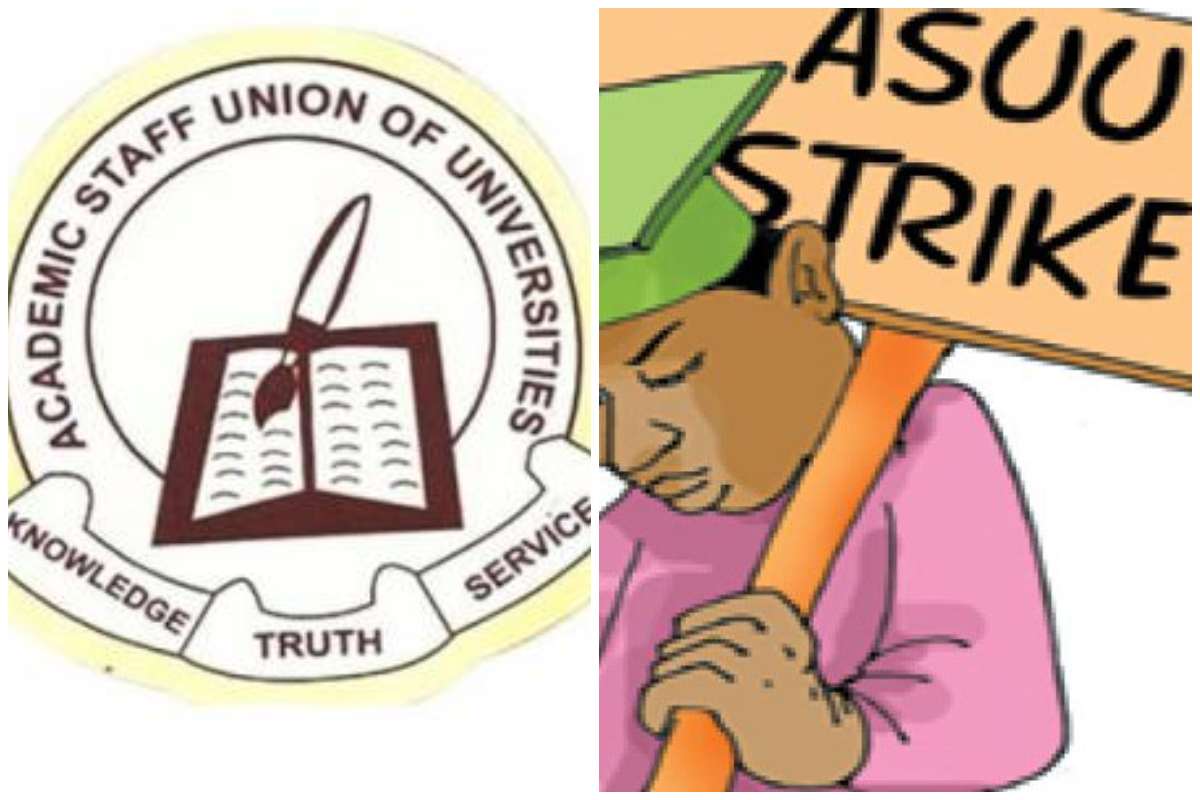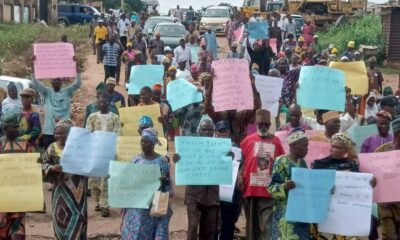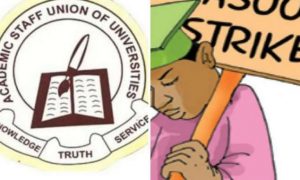Education
ASUU strike: Why Buhari asked us not to sign agreement – Education minister
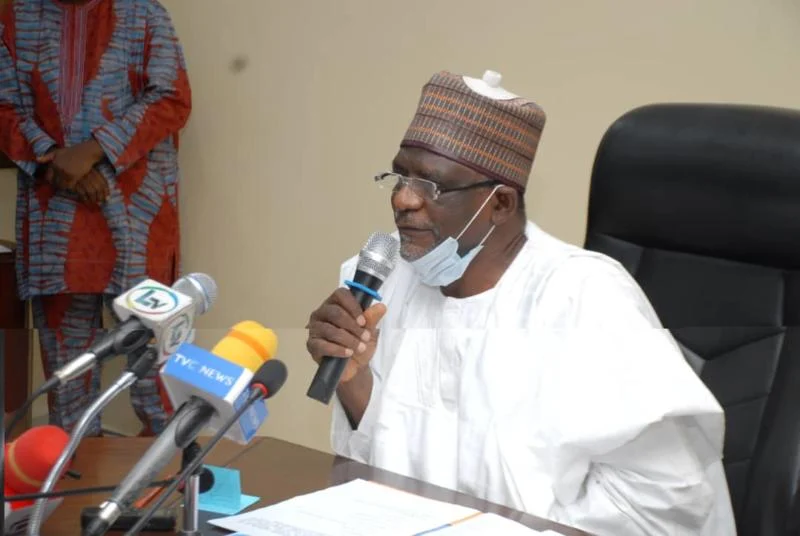
The Minister of Education, Malam Adamu Adamu, Tuesday, disclosed that President Muhammadu Buhari warned the government team involved in the negotiation with the Academic Staff Union of Universities, ASUU, against signing an agreement that government would be unable to implement.
The minister, in his speech at the ongoing meeting of Pro-Chancellors and Vice-Chancellors of Federal Universities, at the National Universities Commission, said the meeting convened at the instance of NUC, became “necessary and urgent due to certain misconceptions and misinformation in the public domain, regarding the ongoing strike action by the Academic Staff Union of Universities, ASUU.”
“Not only is our interaction today necessary, it is also urgent to clarify the misrepresentations and draw your attention to the facts which you, as Managers of our Universities, ought to know by virtue of your assigned duties. It is indeed one of your statutory duties to negotiate with your workers on matters of their welfare and conditions of service” he said.
He recalled that the “current industrial action in our Public Universities started on 14th February, 2022 when ASUU commenced a two-week warning strike over the non Implementation of agreements reached between Government and the Union.
“In all we have been doing, our guide has been the directive of Mr President Muhammadu Buhari, namely, that while the unions should be persuaded to return to work, Government should not repeat the past mistakes of accepting to sign an agreement it will be unable to implement. Government should not, in the guise of resolving current challenges, sow seeds for future disruptions, ”he said.
He regretted that, ”To confound matters further, the three other university non-teaching staff unions – SSANU, NASU and NAAT also declared trade disputes against the Federal Government and commenced nationwide Industrial actions a few weeks later. NAAT started its strike on March 17, 2022 while the Joint Action Committee of SSANU and NASU followed suit on March 27, 2022.”
“In response to the Unions’ demands, the Federal Government reconstituted the FGN/University-based Unions 2009 Agreement Renegotiation Committee, with Emeritus Professor Nimi Briggs as Chairman on 7th March, 2022. The Committee was charged with the responsibility of concluding the ongoing Federal Government renegotiation efforts with the University-based Unions and producing appropriate solutions, workable and enduring agreements for the improvement of the Nigerian University System (NUS),”he said.
The minister’s speech read further: ”While the Briggs Committee was busy interacting with the Unions on all the issues, a Federal Government Inter-ministerial Team, under the leadership of the Minister of Labour, Dr. Chris Ngige, was simultaneously engaging the Unions and resolving some of their minor demands, such as salary shortages and payment of arrears of the minimum wage consequential adjustments as well as payment of promotion arrears. The Ministry of Finance, Budget and National Planning was able to resolve most of these issues by the end of July, 2022.
“On May 12, 2022, about three months into the strike, a high powered Tripartite Plus Conciliation Meeting was held at State House Banquet Hall, at the instance of His Excellency, President Muhammadu Buhari, GCFR, with a view to finding solutions to those issues that were considered thorny and generic to both the teaching staff (ASUU) and non-teaching staff Unions (SSANU, NASU and NAAT). Two of the issues specified during the meeting were categorised under the following: University Transparency and Accountability Solutions (UTAS) by ASUU and the University Peculiar Personnel and Payroll System (U3PS) b. Delay in Re-Negotiation of 2009 Agreements-conditions of service, wages and allowances
“It is important to note that this special conciliation meeting was chaired by the Chief of Staff to the President, Professor Ibrahim Gambari and had in attendance the Secretary to the Government of the Federation (SGF), the Ministers of Labour, Education and Finance, the Head of Service and top government officials. The meeting was also attended by the Sultan of Sokoto, the President of Christian Association of Nigeria (CAN) and all the other critical stakeholders, including the leadership of the four University-based Unions (ASUU, NASU, SSANU and NAAT).
“There were two major outcomes of the meeting. The first was the decision to test the two proposed salary payment solutions, developed by the Unions namely, the University Transparency and Accountability Solution (UTAS) proposed by ASUU, and the University Peculiar Personnel and Payroll system (U3PS), jointly proposed by SSANU and NASU, The two solutions were to be tested alongside the existing Integrated Personnel Payroll and Information System (IPPIS) by the National Information Technology Development Agency (NITDA). The report of the Presidential Committee that was charged with the responsibility of harmonizing the three payment platforms for effective deployment in the system, would be made public as soon as the process is concluded.
“The second outcome of the meeting was an agreement on the need to speedily conclude the renegotiation process in a manner that would be in tune with the realities of the national economy. This would require the Government to carefully and critically examine and review any draft agreement emanating from the Renegotiation Committee to ensure that the financial implications contained therein are sustainable by the current realities of the national economy.
“Soon after the Conciliatory Tripartite Meeting in May, the Nimi Briggs Team concluded the re-negotiation with ASUU and produced a Draft Agreement, which was forwarded to the Federal Government, through the Honourable Minister of Education, for consideration and approval. Similarly, the re-negotiation with the non-teaching staff unions had since commenced, and an appreciable progress had been made towards producing the desired agreements for consideration and approval by their respective principals.
“In the course of the exercise, the FGN Team made several attempts to wade into the Industrial crises between the FGN and the University-based Unions, with a view to finding a lasting and amicable solution to the challenges.
“After a series of meetings with His Excellency Mr President and the Minister of Finance, Budget and National Planning; Minister of Labour and Productivity; Minister of Communications and Digital Economy as well as the DG of Budget and the Chairman, Salaries and Wages Commission and the Minister of Education, the Draft Agreement was critically reviewed and the proposed salary increment considered unrealistic and out of tune with the current realities of the national economy.”
On government’s offer,he said:”It was at this meeting that Mr. President approved that the Minister of Education should take over the negotiation and resolution of the crisis. Soon after the meeting, the Minister of Education conveyed the Federal Government’s offer to the Nimi Briggs Renegotiation Committee and to each of the four Unions.
“The package offered made centred around the four positions agreed upon by the government. It is as follows:That the Federal Government can only afford a 23.5% salary increase for all category of the workforce in Federal Universities, except for the professorial cadre which will enjoy a 35% upward review;
“That henceforth allowances that pertain to ad-hoc duties of the academic and non-academic staff shall be paid as at when due by the Governing Councils of Universities to which such services are rendered and to the staff who perform them;
“That a sum of 150 billion Naira shall be provided for in the 2023 Budget as funds for the revitalization of Federal Universities, to be disbursed to the Institutions in the First Quarter of the year, and
“That a sum of 50 billion Naira shall be provided for in the 2023 Budget for the payment of outstanding areas of earned academic allowances, to be paid in the First Quarter of the year.”
The four University-based Unions, in separate letters addressed to the Chairman of the Government Re-negotiating Team, rejected Government’s offer which they described as inadequate to meet their respective demands needed to tackle the challenges confronting the university system.
“Following the above development, I held several meetings with the individual striking University-based Unions, during which I explained the prevailing economic situation limiting the ability of Government to accede to all their demands. On those occasions, I also appealed to the Unions to consider and accept the Government’s offer and call off the on-going industrial actions in the interest of the nation’s educational system. Consequently, the Joint Action Committee of NASU/SSANU and NAAT suspended their industrial action. Unexpectedly, and quite fortunately, on Monday, 29th August, 2022, ASUU decided to extend its strike indefinitely. I want to say, categorically, however, that all is not lost: We have secured successes elsewhere.”


